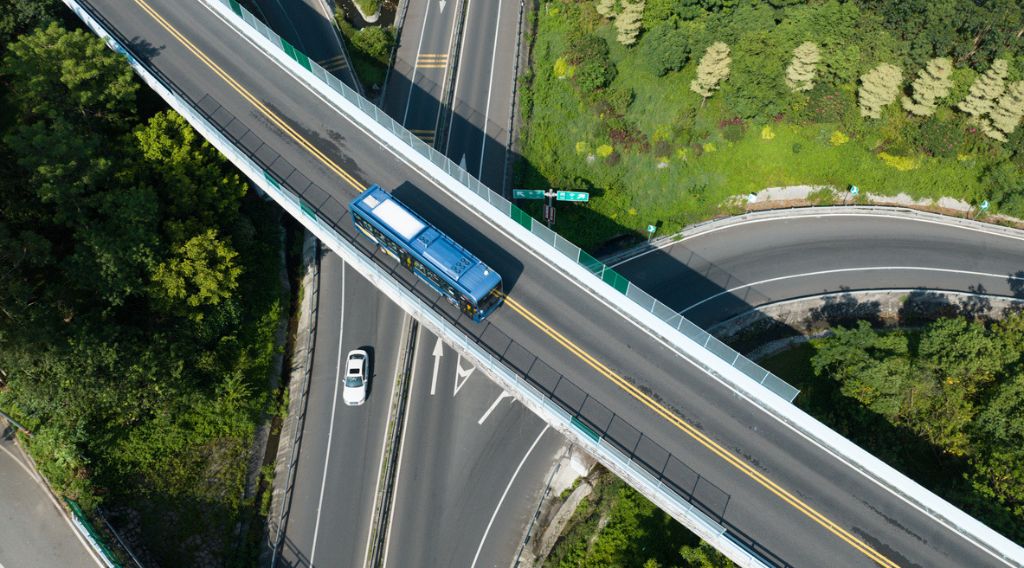Adds momentum toward finalizing nation’s strongest standard next year
May 23, 2023, MINNEAPOLIS—Taking decisive action to move Minnesota to the forefront of national transportation policy, the Minnesota State Legislature has approved funding for consideration of a statewide clean transportation standard, following a concerted push by a diverse coalition of automakers, electric vehicle (EV) manufacturers and charging providers, biofuel producers, and clean energy and conservation advocates.
The language, approved by the state legislature in a 2024 transportation budget deal expected to be signed into law this week by Governor Tim Walz, requires state agencies to convene a Clean Transportation Standard Working Group to study and address information gaps and opportunities for a standard requiring a reduction of the carbon intensity of Minnesota’s transportation fuels by at least 25 percent below 2018 levels by 2030, 75 percent by 2040, and 100 percent by 2050. Such levels would represent the toughest statewide standard in the nation.
The new working group will be made up of representatives showcasing the diversity of Minnesota’s economic, environmental, public health, and other priorities. They will be tasked with submitting a report by February 1 of next year that includes recommendations to the chairs and ranking minority members of the Minnesota state legislative committees with jurisdiction over transportation and energy policy.
The Minnesota Future Fuels Coalition and environmental advocacy partners Minnesota Environmental Partnership and Friends of the Mississippi River were among those leading the push for funding to create the working group. It also received backing in a March supplemental budget proposal from Governor Walz.
“This is exactly the type of momentum toward implementing the strongest statewide Clean Transportation Standard in the nation that we wanted during the first of a historically busy and ambitious two-year legislative cycle,” said Brendan Jordan, vice president for Transportation and Fuels at the Great Plains Institute, which is facilitating the Minnesota Future Fuels Coalition. “Minnesota is where a national model should be built, and by acting now, the state can lead the way in addressing climate change while supporting jobs and driving economic growth in Minnesota’s rural communities.”
“A Clean Transportation Standard is the right policy for getting Minnesota on track to meet greenhouse gas reduction goals in the transportation sector while also helping protect our water quality, soil health and natural habitat,” Friends of the Mississippi River Executive Director Whitney Clark said. “That’s why we supported this year’s bill and now the working group’s efforts to fine-tune legislation that can pass the state legislature next year and allow Minnesota to once again be a climate leader.”
Clean transportation standards, otherwise known as clean fuels policies and low carbon fuel standards, are in place in California, Washington, and Oregon, and statewide legislation is pending in Illinois, Michigan, New Mexico, New York, and Vermont.
A bill introduced this year by Senator Scott Dibble (DFL) and Representative Jeff Brand (DFL), the Clean Transportation Standard Act, directed the commissioner of the Minnesota Pollution Control Agency to establish a statewide clean transportation standard requiring the same carbon intensity reduction requirements the new working group will pursue.
The bill from Senator Dibble and Representative Brand is more ambitious than previous versions introduced in the state legislature and would create the strongest existing or pending statewide clean transportation standard in the nation, reflecting both a changing political environment and the recognition of the need to combat heat-trapping emissions from the transportation sector.
Unlike many pieces of energy legislation that focus on just one technology and define winners in terms of energy options, their Clean Transportation Standard Act lets the market and innovation drive change. This flexibility leads to investment in a variety of alternative fuels, from electricity used in EVs to sustainable aviation fuel to lower-carbon liquid fuels that reduce emissions from gas-powered vehicles already on the road.
It quickly received support in the Minnesota Senate State and Local Government and Veterans Committee.
It also garnered unprecedented support from outside organizations, including the first-time backing from Minnesota Environmental Partnership and Friends of the Mississippi River.
Supporters also include top EV and charging infrastructure providers ChargePoint, Tesla, and Rivian; the Alliance for Automotive Innovation, which includes global-leading automakers and their suppliers; corn-based ethanol advocates Renewable Fuels Association and American Coalition for Ethanol; Union of Concerned Scientists; Delta; Fresh Energy; and Conservation Minnesota.
About the Minnesota Future Fuels Coalition
The Minnesota Future Fuels Coalition, facilitated by the Great Plains Institute, is a broad coalition of stakeholders working together to implement the Minnesota Clean Transportation Standard Act, which is a clean fuels policy tailored to Minnesota. Coalition members include producers and marketers, electric utilities, environmental nonprofits, auto manufacturers, and agriculture and industry groups.
About the Great Plains Institute
A nonpartisan, nonprofit organization, the Great Plains Institute is transforming the energy system to benefit the economy and environment. Working across the US, we combine a unique consensus-building approach, expert knowledge, research and analysis, and local action to find and implement lasting solutions. Our work strengthens communities and provides greater economic opportunity through creation of higher-paying jobs, expansion of the nation’s industrial base, and greater domestic energy independence while eliminating carbon emissions. Learn more at www.betterenergy.org.
Media Contact:
Darren Goode
(202) 550-6619



